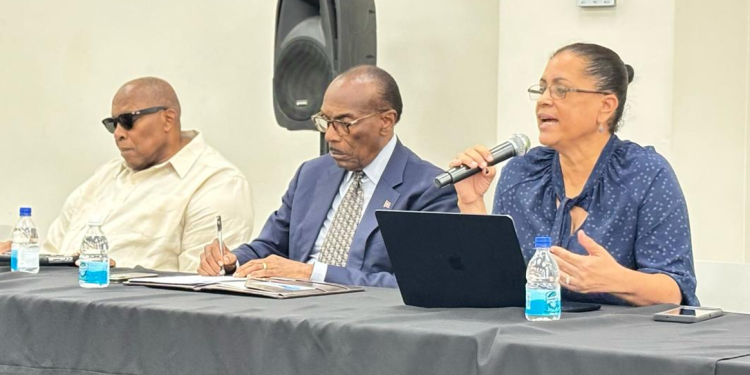The Antigua and Barbuda Government held its inaugural Multilateral Environmental Treaties (Focal Points) Coordination Meeting this week bringing together key stakeholders from across government ministries to enhance the nation’s approach to international environmental agreements.
The meeting, chaired by Ambassador Dr. Walton Webson, Permanent Representative of Antigua and Barbuda to the United Nations, featured Minister of the Environment, Sir Molwyn Joseph as well as Permanent Secretary in the Ministry of Foreign Affairs, Ambassador Clarence Pilgrim. “This coordination effort marks a new chapter in how Antigua and Barbuda engages with the international community on environmental matters,” stated Ambassador Webson. “By speaking with one voice nationally on these critical issues, we strengthen our position globally.” Also present were the, Permanent Secretary of the Ministry Environment, Ena Dalso-Henry and Director-General, Ministry of Foreign Affairs, Ann-Marie Layne.
The meeting addressed the country’s participation in numerous multilateral environmental agreements, including the UN Framework Convention on Climate Change, the Convention on Biological Diversity, the Ramsar Convention on Wetlands, and several others. Representatives from various government departments presented on their respective treaty responsibilities and highlighted both achievements and challenges.
Minister Joseph emphasized the importance of strategic coordination: “Our active participation in these agreements has positioned Antigua and Barbuda as a leader among Small Island Developing States. This coordination mechanism will further enhance our ability to secure resources for national implementation.”
The Department of Environment, which serves as a focal point for 16 multilateral environmental agreements, highlighted the country’s success in placing Antigua and Barbuda nationals in key international positions and securing significant funding through these agreements.
The coordination mechanism aims to further strengthen Antigua and Barbuda’s climate change action on the global stage while bolstering coordination and maximizing benefits from multilateral arrangements.



